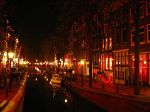
Time molds vivid memories from one’s past into the building blocks of one’s writing…
Catchy title, no? On the serious side, this Building Block does peek at people looking at sex related public activities for the first time, and offers hints at making our writing more ‘human centric.’ How do readers of different age groups mentally relate to, and interpret, what you have written?
Background. Many times when I watch a Public Broadcasting System special, memories from my past come flooding to the fore. It could be a music group that represented what was going on in the ‘personal’ world around me, or an international event that had an effect on my life. We should consider our writing to be no different than a ‘PBS’ special. The reader’s mind is not just involved in the story we are telling, but also with conscious and subconscious mental images of their private past and present worlds. True, we can not foresee each reader’s personal relationship with our written words. However, we must consider this as we write action and dialogue.
What is the age span of your readership? What is the time period your story is set in? The two examples of sex related observations that follow took place in the 80’s. Note the ages of the two individuals involved, and consider the availability of ‘wordlyness’ outreaches at the time; i.e., no Internet, the types of TV shows, magazines and newspapers available, etc. Now think about today’s ‘worldlyness’; individuals of their age groups have much broader understandings of activities around the world. OK, maybe “The Real Housewives of …” is not a good example; whereas, a PBS special is.
For example, in February 2015, PBS aired Rick Steve’s Netherlands: Coffeeshops and Red Light District that highlighted that “Amsterdam has plenty of examples of their progressive approach to subjects many people consider unsavory: curbside urinals, prostitutes who are unionized, taxed, and regulated…and “coffee shops” that sell marijuana.”

De Wallen, Amsterdam. Photo from Wiki.
How could I not instantly recall one evening on a 1981 work trip to Amsterdam, when a coworker, in his mid-40s, stood transfixed in front of a ‘shop’ window, as the scantily clad working woman inside smiled and waved hello at male pedestrians. Not only was he shocked that the woman was engaged in a legal sex business, he had just learned that ‘red light district’ was an actual term, and why. As writers, we can not take for granted that our readers have/have not seen a real ‘red light district’, which is far different than street corner illegal prostitution.
Should your story action take place in the past; how do your characters react to ‘worldly’ situations? Would X walking down the street suddenly stop and lose focus on what he/she was thinking about and focus on the woman on the other side of the window? If not, will the reader accept this? Upon reading the scene will the reader’s mind wonder from your written words.
A similar incident took place early one evening in 1984. I was on a military bus in Brussels, and one of the young, fresh from the farm, 17 year old British soldiers was shocked when he saw a naked woman wave at him from a window. On being told why she was naked and being so friendly, the young man told me that he thought ‘prostitution’ was a made-up term. To this day I wonder what he said when he talked to his parents.
Think about experience you have had when someone was mystified by a sex related occurrence. Have you been with a very conservative individual who was shocked by the handouts the ‘porn slappers’ want to give you on Las Vegas street corners?
Think about your ‘building blocks’; we can not write without them.
